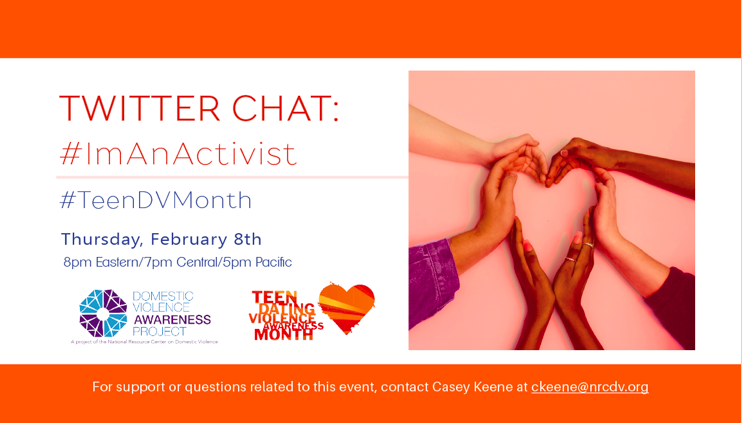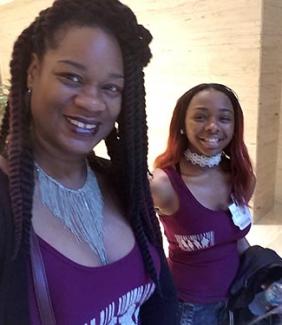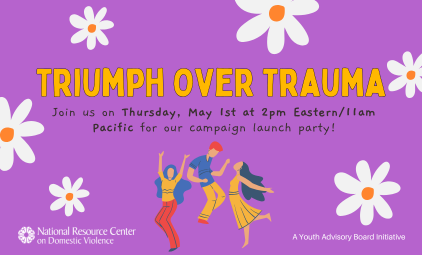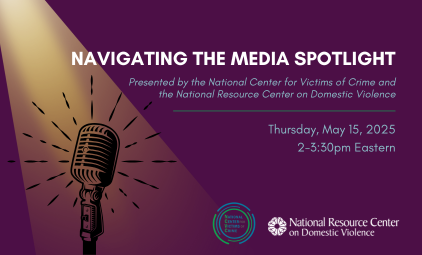By Annika Leonard, Executive Director of Priceless Incite
“I have come to believe over and over again that what is most important to me must be spoken, made verbal and shared, even at the risk of having it bruised or misunderstood.” ― Audre Lorde
As a toddler I was often teased because I didn’t speak clearly. I would communicate with people and be dismissed, they couldn’t understand what I was saying. Sometimes I think to myself that there’s not much difference between then and now. Growing up, there were times I couldn’t find my voice and times I had no words to describe what was happening. I invite you to bear witness to my journey and take an audit of where you are on yours. Upon conclusion, I will invite you to act or continue to act in ways that create space for healing to occur. At the risk of being misunderstood, what is important must be spoken.
My Journey
I write through the lens of witnessing violence in “safe” spaces, surviving sexual assault as a child, dating violence as a teenager and date rape as a young adult. When I reflect on my life’s path, I can identify several experiences where I’ve felt powerless. I can also recall ways in which I empowered myself and those around me.
Coming of age. In middle school it was common for the boys to chase girls down the hallway and “beat us up.” My friends and I would have bruises as evidence that “some boy liked us” (which was explained to us as the reason they hit us). The girls outnumbered the boys. Upon realization and without analysis, I formed “The Fat People Posse,” a crew of young women who equated power with numbers and physical size, we were claiming to be bigger than what we were. When one of our crew was attacked, we would all come to their aid. It worked; we took back our power.
Young adulthood. Fast forward to my 20’s. I met a guy who ran a scam on me, causing me to lose my great paying job at a bank and be investigated for fraud. Once cleared of charges, I was groomed by a local pimp and persuaded to travel out of state with him “to make quick money” and get back on my feet. The experience ended with me escaping his control with the help of hotel staff. Upon returning home, I worked full time while completing both my Bachelor's and Master's degree programs. I felt empowered as a first-generation college student and single mother.
Adulthood. In my work at a state anti-violence coalition during my 30’s, I was introduced to the term Life cycle of a WOC Advocate, coined by the Women of Color Network (WOCN) to depict the high turnover rate and its emotional impact on women of color in the anti-violence movement. By 2010, I began to identify with what the WOCN coined as the “Endangered Woman of Color Advocate.” This phrase captures the experiences of women of color advocates who are targeted, overlooked, undervalued, and displaced from their organizations. In 2011 I left a hostile environment, feeling powerless as I stood on the corner of a street in a city I did not live in, trying to figure out how I was going to make it home from work.
Shortly after this experience, I began working for an agency whose stated mission was to realize racial and gender justice. When I expressed concern about decisions that disproportionately impacted people of color, I was subjected to disciplinary action. I submitted a rebuttal and was retaliated against by the administration. I worked for a few more organizations before I decided to do consultant work while starting my own organization. I started Priceless Incite because I could not see myself reflected in the leadership of many of the organizations in which I engaged. I also liked the idea of sharing power and co- creating a space where youth voices would be honored and centered in all that we do.
Answering the Call
It is important to me that we transform the current space we are in as a movement, and we cannot do this without youth activists. We can transform this space by telling the truth, taking risk, making ourselves vulnerable and sharing how we have overcome adverse experiences. These strategies light the way for those of us who have walked through darkness to continue healing and growing.
To tell the truth about the current movement would be to admit that we cannot create authentic space for youth activists if WOC are being pushed out of those same spaces. The Women of Color Network notes that "there is a persistent pattern of non-diverse leadership and style of service provision in local, state and national programs, which has replicated status and structure that maintains privilege for those who are white, heterosexual, college educated, non-immigrant, non-Native, and older (but not too old), and to marginalize all others, thus developing a 'mainstream' advocacy approach that fails to meet the needs of those who fall outside of the mainstream."
Today I am a participant in Leadership Education and Advancement for Professionals (LEAP), a project of the California Coalition Against Sexual Assault (CALCASA) in partnership with Women of Color Network (WOCN, Inc). The primary purpose of LEAP is to enhance the professional skills of individuals of color seeking professional advancement in the anti-violence against women field. As part of Cohort 4, I am gaining the skills needed to further the vision of Priceless Incite.
Taking Risks
I have taken a risk in sharing my truth with you today. It has taken me a substantial amount of time to come to terms with what I feel compelled to say. I will continue this level of vulnerability and risk to share that in my journey. I have carried with me the weight of a person impacted by multiple forms of trauma, which means that there have been times that I didn’t show up as my best self, when I questioned my worth, my intelligence and my contribution to the work. There are times when I still do. These are some of the same circumstances we will be asked to support youth through when we invite them into space with us. It is imperative that we bring all of who we are to the work, which means we show our humanity – particularly, the parts of ourselves that we feel are hard to love and accept. This could be the space youth are in and they could benefit from the gift of hearing your experience with adversity. Are you willing to share of yourself in that way? Do you love and accept yourself fully? Your ability to love and accept yourself impacts whether you can create space for others to love and accept themselves. Have you forgiven yourself? If you haven’t, it will make it hard to forgive imperfections you see in others and this can impact the spaces you wish to create.
“Some people when they hear your story, contract. others upon hearing your story, expand. This is how you know.” – Nayyirah Waheed
Leveraging Our Trauma Assets
Surviving trauma, being impacted by institutional racism, and internalizing feelings of guilt and shame, I navigated my life in an incredible amount of pain. I felt unsafe most of my childhood and developed beliefs about myself that have taken years to uncover and heal. These beliefs have shown themselves in every aspect of my life and the process of healing has been intense. I am thankful for a strong spiritual foundation, family, friends, mentors, co-workers, WOC advocates, and aspiring accomplices. Without them I would not be here. If I were not here, I would not be able to share with youth the process I used for overcoming trauma. My process is reflected in a curriculum titled Diamonds are Forever Priceless –my contribution to this work. It is in these experiences that I have been able to find the treasure in the pain.
Self-Reflection
Self-reflection is a useful tool when considering intergenerational activism. A quote by Audre Lorde tells us that revolutionary change isn’t just about escaping oppression, it’s also about recognizing the way we have begun to identify with oppression. I recognize how I identified with oppression by internalizing the harm done to me in various personal and professional experiences. I have also been the person who has caused harm in both my personal and professional life. How often do you reflect on your relationship to oppression? I encourage you to process your experiences with oppression before inviting youth activist to the table.
We must reconnect to our truth to create the intergenerational space needed to end violence. The process of remembering what we have endured as children, young adults and in adulthood will assist us in creating this space, but only when we bring our whole selves to the work in an authentic way.
“To tell the truth is to become beautiful, to begin to love yourself, value yourself. And that’s political, in its most profound way.” —June Jordan
Connect with Annika Leonard at @pricelessincite during our upcoming #ImAnActivist Twitter Chat on Thursday, February 8th from 8-9pm Eastern, where @NationalDVAM will lift up and learn from the work of young activist leaders working to advance social justice.

To learn about other opportunities for engagement during Teen Dating Violence Awareness and Prevention Month from NRCDV, visit: https://www.nrcdv.org/training/















